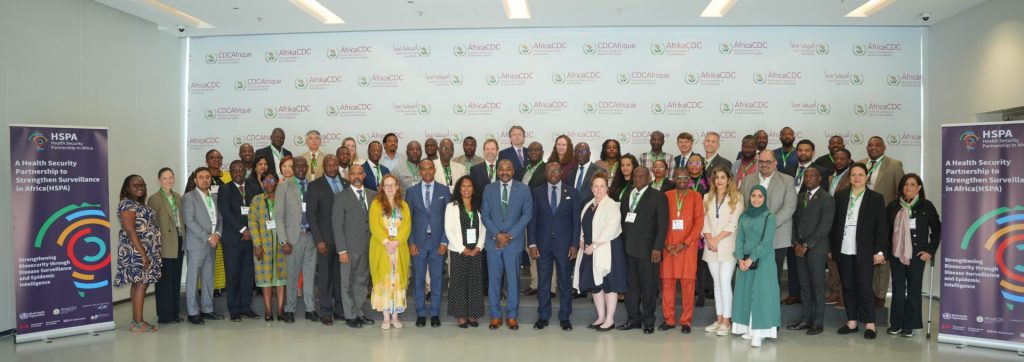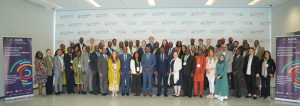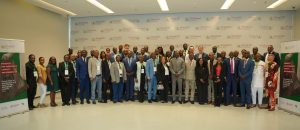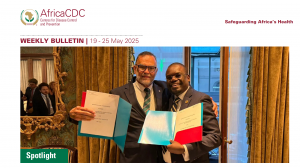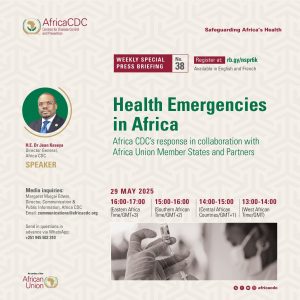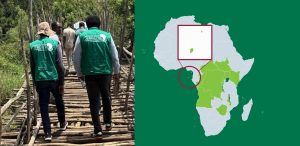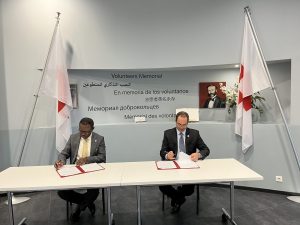Addis Ababa, Berlin, Geneva | 29 May 2025 — The World Health Organization (WHO), Africa Centres for Disease Control and Prevention (Africa CDC) and the Robert Koch Institute (RKI) announced today the expansion of the successful Health Security Partnership to Strengthen Disease Surveillance in Africa (HSPA) to seven countries on the continent.
The Health Security Partnership strengthens disease surveillance and epidemic intelligence across the African Continent, enabling countries to better detect and respond to health security threats – whether they are natural, accidental, or deliberate.
Supported by the Government of Canada’s Weapons Threat Reduction Program (WTRP) and the Government of the United Kingdom, the HSPA is aligned with the health security objectives of the G7-led Global Partnership Against the Spread of Weapons and Materials of Mass Destruction (GP) and the Signature Initiative to Mitigate Biological Threats in Africa (SIMBA). HSPA was launched in 2023 in six countries: The Gambia, Mali, Morocco, Namibia, South Africa, and Tunisia. The partnership will expand to other countries, including Rwanda, in its second phase which runs from 2025-2028.
“HSPA represents an important step forward in building stronger partnerships for health security in Africa. By bringing together global, regional and national actors, this initiative supports countries in strengthening Collaborative Surveillance through mutual exchange and practical action. WHO remains committed to working alongside Member States to ensure that these collective efforts are well-coordinated, responsive, and rooted in national priorities,” said Dr Chikwe Ihekweazu, Acting WHO Regional Director for Africa; Deputy Executive Director, WHO Health Emergencies Programme.
Africa experiences more disease outbreaks than any other part of the world. While significant progress has been made in strengthening disease surveillance over the past decade, no country can tackle today’s complex health threats alone.
“Within the framework of this project, Africa CDC will work with the Member States in mobilizing political will for biosecurity and surveillance, establishing regional frameworks for bio-surveillance of high-consequence biological agents and toxins, and coordinating event-based surveillance. The collaboration with other partners and coordination with Member States is crucial especially in the current context of limited resources to strengthen the continent’s capacity for early detection, response, and management of biological threats,”said Dr Raji Tajudeen, Acting Deputy Director General and Head, Division of Public Health Institutes and Research, Africa CDC.
At the heart of the initiative is a Collaborative Surveillance approach that connects health and security sectors to reduce biological risks and threats and strengthen surveillance systems nationally and internationally.
The partnership is supporting countries to strengthen capacities in biorisk management, event and indicator-based surveillance, genomic surveillance and epidemic intelligence. This is achieved through training, guidance development, co-creation of implementation roadmaps, and hands-on technical assistance to ensure that implementation is aligned with country priorities, embedded within broader national systems, and built for long-term sustainability.
“We are proud of what this partnership has achieved so far. It has strengthened health system coordination and resilience in the African Continent, delivering tangible gains in biosecurity, disease surveillance, genomic surveillance, and epidemic intelligence. This has only been possible because of unwavering support from the Government of Canada and the trusted partnership between Africa CDC, RKI and WHO, with countries in the driver’s seat,” said Dr Merawi Aragaw, Head of Surveillance and Disease at Africa CDC.
The HSPA initiative has been supported from the start by the Government of Canada through its Weapons Threat Reduction Program, with additional funding in phase two from the Government of the United Kingdom.
Building on the achievements in phase one, the participating countries, with support from WHO and partners, will accelerate implementation to build a healthier, safer and more resilient Africa.
For further information:
Media Contacts:
Margaret Edwin, Director of Communication and Public Information | Email: EdwinM@africacdc.org
WHO Media Team Email: mediainquiries@who.int

